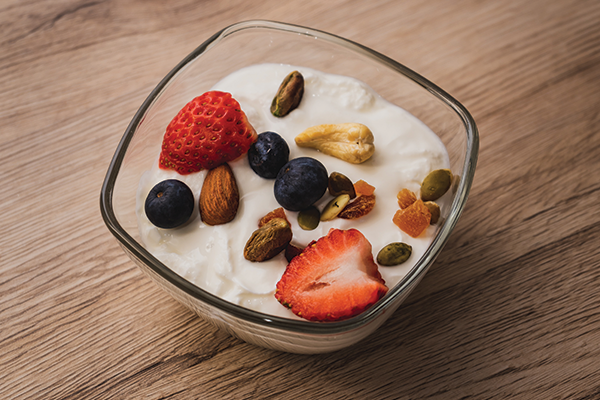What Are Probiotics?
Probiotics are tiny microorganisms that assist with gut health. Because there are good and bad bacteria in our gut, it’s important to repopulate the good bacteria. They’re necessary for proper digestion and nutrient absorption. Our bodies contain tons of microorganisms to function.
These good bacterias help fight harmful microorganisms like germs. They’ve shown benefits for various bodily functions, and their abilities are undergoing further research in lab studies.
The bacteria in our gut are responsible for multiple tasks in our body. Taking and eating probiotic-rich foods helps them function efficiently.
How Can They Help?
These tiny microorganisms can help immensely with our digestion. They increase good gut bacteria, allowing for proper digestion of foods and absorption of nutrients.
Probiotics have shown improvement for the following issues:
- Colic
- Constipation
- Crohn’s disease
- Diarrhea
- Irritable bowel syndrome
- High cholesterol
- Lactose intolerance
- Nutrient absorption
- Weight gain

Most of these issues impact the quality of daily life. Relief from their symptoms can improve the overall sense of well-being.
Probiotics in your gut go beyond the effects of healthy digestion and elimination. They can also help improve immune response and mental health. Due to the added protein absorption, they may also improve muscle recovery. Studies are also underway to determine the effects of these powerful microorganisms on oral health.
In addition to these benefits, probiotics may help with antibiotic-resistant infections. The concern about antibiotic resistance is rising. These microorganisms can protect us by working with our bodies’ natural systems.
Foods with Probiotics
Probiotics come in capsules and drinks, but there are numerous foods that naturally have high levels of good gut bacteria. Incorporate the following foods into your diet to experience the benefits of a healthy gut:
- Greek yogurt
- Kefir
- Kimchi
- Kombucha
- Sauerkraut
Different Probiotic Strains
Probiotics come in various strains linked to different benefits. More research is required to make results conclusive. The most researched are Lactobacillus and Bifidobacterium. On supplement bottles, the types will begin with a B or L. These are considered the safest strains to take as others are not as well-researched, making the side effects unknown.
The Lactobacillus and Bifidobacterium strains include:
- L. acidophilus
- L. casei
- L. plantarum
- B. bifidum
- B. lactis
- B. longum
Tips for Better Results
- Ease into taking probiotics and watch how your body responds to increased CPU (colony forming units). Recommended daily doses are between one billion and 10 billion.
- Take probiotics before or during meals, but not after.
- Try and get most of these microorganisms from probiotic-rich food. Foods tend to carry more strains, while supplements only have the one listed on the bottle.
- Make sure you’re taking quality supplements. Research brands or ask for advice at natural food stores.
Prebiotics vs. Probiotics
Harmful gut bacteria are responsible for an array of digestive problems. Probiotics and prebiotics are both needed to restore healthy gut bacteria and keep things functioning well. They may sound similar but have different functions for your body.
Probiotics are the live cultures found in food and supplement form. They are responsible for the benefits of digestion and general well-being.
Prebiotics feed probiotics. Prebiotics occur in different types of carbohydrates. They’re mostly from fiber that the human body can’t digest. The live probiotic microorganisms feed on fiber.
Here are some examples of foods that have naturally occurring prebiotics:
- Legumes and beans
- Oats
- Asparagus
- Berries
- Garlic, leeks, and onions
- Bananas
Potential Side Effects
Most people don’t have any issues when taking probiotics. Studies haven’t found any significant adverse side effects. However, some people do experience gas or bloating. Others may experience abdominal pain.
If you encounter any of these undesired side effects, decrease the concentration of probiotics you take. It’s essential to ease yourself into taking probiotics if you are susceptible to any of the side effects. Slowly increase your CPU intake to allow the body to properly adjust.
As with any new regimen, it’s imperative to consult your doctor before starting to take probiotics. Replacing any medications with probiotics should only be done under your doctor’s supervision. If you are giving probiotics to children, please consult a doctor to ensure it’s safe.
People with pre-existing health conditions should be cautious with taking probiotics. If you’re immunocompromised or have a chronic illness, it’s especially crucial to consult your doctor.
The Bottom Line
Probiotics are incredible little microorganisms that host a variety of benefits for bodily functions. They can assist with symptoms from digestive issues while also improving general well-being.
Because they’re naturally occurring in foods we consume, they work with our existing body systems. In addition to helping with digestion, probiotics can benefit the immune system and mental health.
It’s easy to incorporate probiotics into our diets through food or supplements. Easing into taking probiotics may help you avoid any potential side effects.












